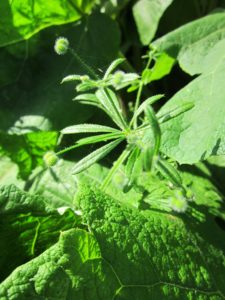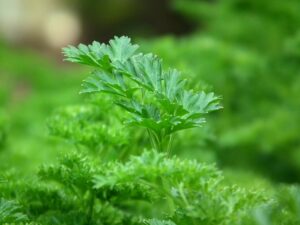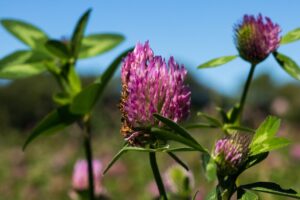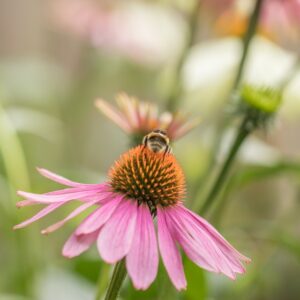Lymphoma is one of the ten most common cancers in the United States. It impacts the immune system cells called lymphocytes, which structure the lymphatic system necessary for collecting waste products, bacteria, and damaged cells before destroying or removing them from the body.
Lymphoma has more than 70 different types. Non-Hodgkin is the most common, accounting for approximately 90% of all cases. It is the sixth most diagnosed cancer among American women and the seventh most diagnosed among American men.
The causes of lymphoma continue to elude scientific understanding. However, the following risk factors can influence a person’s chances of getting the disease:
- Age: While lymphoma can arise at any age, those who are 60 or older are more likely to develop it.
- Gender: A man’s risk for lymphoma is higher than a woman’s. According to the American Society of Clinical Oncology, doctors will diagnose an estimated 44,880 men and 35,670 women with lymphoma (non-Hodgkin) in 2023.
- Weak immune system: Adults with compromised immune systems are more susceptible to lymphoma. For example, people with HIV are at risk for HIV-associated non-Hodgkin lymphoma, while organ transplant recipients are prone to post-transplant lymphoproliferative disorder.
- Cancer treatment: Cancer patients and survivors who received radiation therapy have an increased risk for lymphoma.
- Exposure to certain chemicals: Prolonged or excessive exposure to human carcinogens like benzene contributes to lymphoma occurrence.
- Weight: Being overweight or obese heightens a person’s vulnerability to this malignancy.
Fortunately, while lymphoma is common, prognosis and overall survival rates are favorable. The key to deciding the appropriate treatment is identifying which type of lymphoma affects the patient.
Herbal Treatment Options for Lymphoma Patients
Conventional medicine and procedures aside, more and more patients seek alternative ways to treat lymphoma. Here are some of the cancer-fighting botanicals piquing interests:
1. Cleavers 
Cleavers (Galium aparine) is an edible weed or wildflower found in North America, Europe, Asia, Greenland, and Australia. It may act as a tonic, diuretic, and anti-inflammatory for the lymphatic system, aiding in removing toxins and facilitating lymphatic cleanse through the urinary tract.
Cleavers have exhibited immunomodulatory effects by enhancing lymphocyte proliferation – the initial step in a proper immune response. These findings suggest that the herbaceous plant may improve immune system functions and reduce cancer cells.[1]
2. Parsley 
Parsley (Petroselinum crispum) may help shut down or disable the Epithelial Growth Factor (EGF), a protein that stimulates cancer growth. These pungent green leaves may also block the cancer-causing effects of heterocyclic amines, which play a role in cancer cell propagation and migration.[2]
3. Green Tea 
Research-based evidence suggests that green tea (Camellia sinensis) has anti-cancer properties that can mitigate tumor growth and combat malignant cells. The catechins in tea leaves are the primary polyphenolic compounds, which include epigallocatechin-3-gallate (EGCG). EGCG disrupts the communication signals that cancer cells rely on for survival.[3]
4. Red Clover 
Red clover (Trifolium pratense) is a plant from the legume family. Its diuretic properties act as a detoxifying agent, flushing out toxins from the body through perspiration.
While no conclusive scientific evidence currently supports the curative potential of red clover in lymphoma treatment, a promising area of interest involves its isoflavones content. These compounds, including genistein and daidzein, have demonstrated anti-tumor activity in previous studies.[4]
5. Pau d’Arco (Pink Trumpet Tree)
Pau d’arco (Tabebuia avellanedae) is a broadleaf evergreen tree with vivid pink-to-violet flowers. Natural medicine practitioners use its inner bark to treat various conditions, including pain and inflammation. These immune system responses are highly associated with certain cancers.
Also referred to as taheebo or lapacho, some researchers believe that the bark and wood of pau d’arco may inhibit cancer growth and progression.[5] It may also reduce arthritic pain, dysentery, colds, boils, and ulcers thanks to its antioxidant, antiviral, analgesic, laxative, expectorant, and anti-inflammatory properties.
6. Echinacea (Coneflower) 
A medicinal plant with a longstanding reputation for aiding immune function is echinacea. Three of its nine species are deemed therapeutic: Echinacea purpurea, Echinacea pallida, and Echinacea angustifolia.
Echinacea is popular among North Americans and Europeans for its ability to boost the immune system and combat free radicals, viruses, and diseases. In some studies, precise doses of specific echinacea extracts effectively repressed cancer proliferation. However, further research is necessary to strengthen this claim, as conflicting investigations demonstrated that echinacea can interfere with anti-cancer drugs.[6]
7. Red Root
Red root (Ceanothus americanus) is a shrub with white flowers and a long, bitter root used as an herbal remedy for various conditions. It encourages lymphatic drainage, safeguarding against ailments and promoting overall well-being. This medicinal plant may have more definitive anti-cancer properties, but additional research is necessary to confirm its efficacy.
8. Bloodroot
Popular among natural medicine practitioners and herbalists, people have been using bloodroot (Sanguinaria canadensis) for hundreds of years in holistic care. Berberine, a compound within this perennial flowering herb, achieved apoptosis or programmed cell death in some malignant diseases during in-vitro studies, where cancer cells are cultured and exposed to various substances.[7]
9. Reishi Mushroom
Medicinal mushrooms, including reishi, have gained approval as complementary components to conventional cancer treatments in China and Japan for over 30 years. These countries boast a substantial clinical track record for the safe use of mushrooms in cancer care, whether administered individually or in combination with chemotherapy.
Studies have explored the effects of mushrooms on immune response pathways and their direct antitumor mechanisms. Among them, reishi (Ganoderma lucidum) can enhance immunity and stimulate innate immune cells, including natural killer cells, monocytes, and dendritic cells, to trigger the death of cancer cells.[8]
Supplementary Therapeutic Approaches and Strategies
In addition to the nine herbs discussed above, lymphoma patients can incorporate warm and ice baths in their routine. A warm bath or hot shower not only promotes relaxation and soothes stiff joints, but also releases toxins and chemicals from the body through perspiration. On the other hand, an ice bath or cold therapy may slow tumor growth rates and alleviate tumor hypoxia.[9]
Lastly, anyone battling lymphoma should prioritize nutrition. A daily serving of detox vegetables, including kale, spinach, cabbage, or asparagus, can help the body expel toxins. Drinking water throughout the day can also cleanse the body from within.
A Word of Caution
Note that most herbal treatments for lymphoma need further, more in-depth validation from the scientific community. Consult your healthcare provider before changing or integrating natural alternatives into your treatment plan. Together, you can make well-informed decisions.
New Hope for Lymphoma Patients
Having “New Hope” is believing that a positive outcome awaits you. While this viewpoint can be challenging to maintain in the face of lymphoma, you can have full confidence in us giving you a fighting chance against your diagnosis. You can go through our Stories of Hope for a glimpse of how we helped cancer patients become survivors. You can also contact us at 480-666-1403 for more information on alternative lymphoma treatments focused on improving overall quality of life.
Sources
[1] Ilina T, Kashpur N, Granica S, et al. Phytochemical profiles and in vitro immunomodulatory activity of ethanolic extracts from galium aparine l. Plants. 2019;8(12):541. doi:10.3390/plants8120541
[2] Zheng W, Lee SA. Well-done meat intake, heterocyclic amine exposure, and cancer risk. Nutr Cancer. 2009;61(4):437-46. doi: 10.1080/01635580802710741. PMID: 19838915; PMCID: PMC2769029.
[3] Khan N, Mukhtar H. Tea Polyphenols in Promotion of Human Health. Nutrients. 2018 Dec 25;11(1):39. doi: 10.3390/nu11010039. PMID: 30585192; PMCID: PMC6356332.
[4] Kurahashi N, Iwasaki M, Inoue M, Sasazuki S, Tsugane S. Plasma isoflavones and subsequent risk of prostate cancer in a nested case-control study: the Japan Public Health Center. J Clin Oncol. 2008 Dec 20;26(36):5923-9. doi: 10.1200/JCO.2008.16.8807. Epub 2008 Nov 17. PMID: 19018085.
[5] PAU D’ARCO: Overview, uses, side effects, precautions, interactions, dosing and reviews. (n.d.). WebMD. Retrieved September 21, 2023, from https://www.webmd.com/vitamins/ai/ingredientmono-647/pau-darco
[6] Wahowiak, L. (2022, July 5). What is echinacea? uses, forms, potential health benefits and risks, and more. EverydayHealth.com. https://www.everydayhealth.com/diet-nutrition/what-is-echinacea-uses-forms-potential-health-benefits-and-risks-and-more/
[7] Barhum, L. (2021). What is Bloodroot? Verywell Health. https://www.verywellhealth.com/bloodroot-4175168
[8] Jin H, Song C, Zhao Z, Zhou G. Ganoderma Lucidum Polysaccharide, an Extract from Ganoderma Lucidum, Exerts Suppressive Effect on Cervical Cancer Cell Malignancy through Mitigating Epithelial-Mesenchymal and JAK/STAT5 Signaling Pathway. Pharmacology. 2020;105(7-8):461-470. doi: 10.1159/000505461. Epub 2020 Jan 29. PMID: 31995806.
[9] Seki, T., Yang, Y., Sun, X. et al. Brown-fat-mediated tumour suppression by cold-altered global metabolism. Nature 608, 421–428 (2022). https://doi.org/10.1038/s41586-022-05030-3


